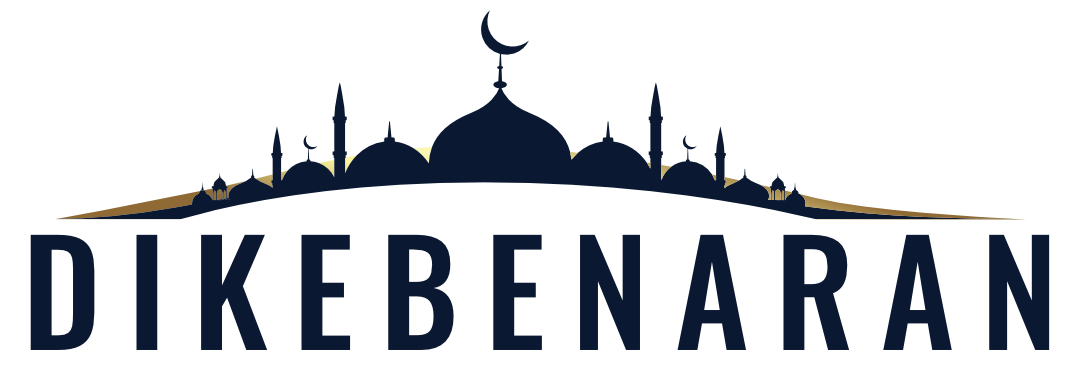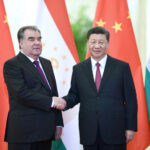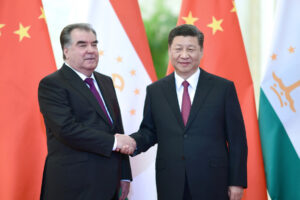The Association of Southeast Asian Nations (ASEAN), numbering 10 countries and member-to-be East Timor, also known as Timor Leste, is meeting in Jakarta this week in a summit fraught with difficulty.
Leaders will meet from September 5 to 8, in Indonesia’s capital, with United States Vice President Kamala Harris, Chinese Premier Li Qiang and other prominent politicians flying in. But whether ASEAN can reconcile the differences over Myanmar, and stand up for East Timor and the Philippines, is seen as key to its survival as the pre-eminent diplomatic grouping for Southeast Asia.
Thailand’s outgoing military-led government broke ranks with the bloc, which collectively had decided to suspend Myanmar’s generals from top meetings, and embraced the neighbouring country’s regime with support from China.
Then, last month, Myanmar’s coup leaders expelled East Timor’s top diplomat in Yangon after the Timorese joined a long list of countries in meeting with Myanmar’s National Unity Government (NUG), set up by removed and elected lawmakers mostly associated with now jailed civilian leader Aung San Suu Kyi.
Addressing ASEAN foreign ministers on Monday, Indonesian Foreign Minister Retno Marsudi acknowledged the “many difficult circumstances in the region”, including Myanmar.
“The eyes of our peoples are on us to prove ASEAN still matters,” Marsudi said.
The bloc also faces continuing challenges over the disputed South China Sea where there has been scant progress on a much-talked-about code of conduct.
The Philippines last month accused China of using water cannons to attack resupply vessels off Second Thomas Shoal. China’s release of a new map depicting its expansive claims has also caused upset.
“ASEAN’s silence on key issues, particularly the ongoing crisis in Myanmar, calls the bloc’s relevance into question,” said ASEAN Parliamentarians for Human Rights co-chair, Charles Santiago, in a September 3 statement.
“How can ASEAN matter if it cannot come together to resolve the most crucial and pressing issue in the region? Who is really deciding on ASEAN’s foreign affairs – ASEAN member states or China?” Santiago, a three-term Malaysian lawmaker, added.
In a region where the US and China are jostling for influence, ASEAN is struggling to deliver on divisive issues, which are undermining its claim to unite the region and act as a bulwark against big power rivalry.
Many hoped that with Indonesia chairing the organisation in 2023, the differences could be addressed, but Jakarta has struggled to maintain cohesion. Laos, a small landlocked country heavily dependent on China, is due to take the reins in 2024.
“The credibility of ASEAN’s centrality – its leadership in regional cooperation – is under severe stress. A key problem is Myanmar’s military regime which has successfully split the organisation,” said Laetitia van den Assum, a veteran diplomat and a former Dutch ambassador to Myanmar, Thailand, Cambodia and Laos.
Continuing violence
Despite agreeing to a “five-point consensus” for ending Myanmar’s political crisis in April 2021, Senior General Min Aung Hlaing and his army have not ceased their violent crackdown and have conducted air attacks as well as mass burnings of villages, actions condemned by the international community.
According to the monitoring group Assistance Association for Political Prisoners (AAPP), more than 4,000 protesters and civilians have been killed by the military government and about 20,000 are in detention.
East Timor is not the only country to meet with the NUG. Officials from Malaysia and Indonesia have also met its officials, while Japan and South Korea have allowed NUG representative offices to be set up in Tokyo and Seoul, respectively.
Van den Assum told Al Jazeera that the generals are trying to blackmail East Timor into stopping NUG engagements: “This is a rough wake-up call. Sane heads should prevail at the summit.”
There is some hope that Thailand’s new government, led by Srettha Thavisin, will not follow strongman and former Prime Minister Prayuth Chan-ocha’s embrace of Min Aung Hlaing, “but that will not be sufficient to undo the longer-term damage already done to ASEAN’s standing”, the veteran diplomat said.
Last month, Timor-Leste’s Prime Minister Xanana Gusmão said his country could not accept military coup governments anywhere and could not ignore human rights violations in Myanmar.
“Timor-Leste will not be joining the ASEAN if ASEAN cannot convince the military junta in Myanmar [to end the conflict],” Gusmão said in a statement.
One way forward is for ASEAN’s founding states (Indonesia, Malaysia, the Philippines, Singapore and Thailand), which have mostly appeared to have taken a more principled stand on Myanmar, to co-lead efforts, according to Thitinan Pongsudhirak, a prominent political scientist affiliated with the Institute of Security and International Studies at Thailand’s Chulalongkorn University.
“Having the ASEAN-5 jointly putting pressure on Min Aung Hlaing will help bring his regime to heel because the Burmese generals have failed to impose control over the territory and the population. The regime is losing the civil war. The newly configured grouping should also engage with the National Unity Government,” Pongsudhirak told Al Jazeera.
“Other member states shouldn’t be allowed to hold ASEAN hostage on Myanmar’s crisis and the impasse,” he added.
Meanwhile, another crisis is brewing. In early August, Chinese ships fired water cannons at a Philippine supply mission to the Second Thomas Shoal in the disputed Spratly Islands, stopping it from reaching Filipino troops.
The Philippine Coast Guard described Beijing’s actions as “excessive and unlawful”, and said that they also violated international law.
The move came a few weeks after Cambodia vetoed Jakarta’s proposal for ASEAN to stage the bloc’s first-ever exercises in the North Natuna Sea, a resource-rich area off Indonesia’s northern coastlines that overlaps with the southernmost area of Beijing’s sweeping “nine-dash line” claim to almost all of the contested South China Sea. The exercises were relocated to a more southerly area.
“Reassurance that ASEAN doesn’t wish to see the status quo in the South China Sea to be changed by force is likely to be reiterated in the upcoming summit. The South China Sea remains a contested space in which ASEAN’s dialogue over its challenges is an objective in itself,” said Alessio Patalano, a professor of war and strategy in East Asia at King’s College London.
But from the Philippines’s perspective, proximity to the US is likely to continue regardless of how strong ASEAN statements on the matter will be, Patalano added.
China has appeared to double down on its political messaging on the sea, which is also claimed by Brunei, Malaysia, the Philippines, Taiwan and Vietnam (all bar Taiwan are ASEAN members).
In late August, a new map published by the Chinese government once again depicted the “nine dash line” to lay claim to almost all of the South China Sea, prompting angry rebuttals from the other claimant states.
An international court in 2016 ruled that China’s claim, based on the nine dash line, was without merit.
Looming paralysis
The various crises are connected and ASEAN is more divided than ever, according to Hunter Marston, a Southeast Asia researcher at the Australian National University. The bloc’s competing approaches to the Myanmar crisis are emblematic of one of the divides – between authoritarian and more democratic states.
“China’s harassment of claimant states in the South China Sea is driving another fracture between maritime and mainland states. To some extent, this divide maps onto that between more democratic and more authoritarian member states,” Marston told Al Jazeera.
“The world is looking at ASEAN to see whether it can do more than merely issue hollow communiques or rise above accusations that it is simply a talk shop and nothing more.”
ASEAN’s internal dynamics will partly depend on how Thailand’s new prime minister intends to navigate divisions within the bloc and pressure from China. Prayuth was known not only for backing Min Aung Hlaing but was also accused of bringing Thailand closer to China and Xi Jinping’s powerful government.
A property tycoon, Srettha Thavisin emerged as prime minister after the candidate from the progressive Move Forward Party, which won the May election, was blocked from the top job. Srettha’s populist Pheu Thai party, which came second, then joined forces with conservative lawmakers to form a government.
The NUG, perhaps sensing a potential window, has offered their congratulations to their neighbour’s new leader and urged him to allow better humanitarian access to the conflict-ridden Thai-Burma border.
“We wholeheartedly welcome Prime Minister Thavisin’s expressed intention to restore Thailand’s international standing, and we hope this signifies a commitment to taking a more robust stance on addressing the ongoing crisis in Myanmar,” said NUG cabinet minister Dr Sasa, who emphasised that the crisis has “far-reaching implications for regional peace and stability”.
Implementing ASEAN’s five-point consensus and the Burma Act in the US National Defense Authorization Act (NDAA) is “of paramount importance”, the minister added. He called on Thailand to work with “like-minded countries … to exert maximum pressure on the military junta”.
But with the clock ticking on Jakarta’s chairmanship, few analysts see much chance of a breakthrough under the direction of Vientiane.
“There is a genuine question on whether Laos has the capacity or autonomy [from China] to get ASEAN to move ahead on key issues,” said a diplomat involved in the region who preferred not to be publicly identified. “Realistically, we may see a paralysed ASEAN under Vientiane’s leadership.”















